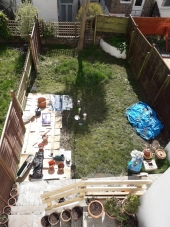Home gardeners are a lucrative side market to the industrial horticultural industry. We are sold the same products at grossly inflated prices.
We fumble around “pricking out” and transplanting our seedlings, imitating machinery in a terribly inefficient manner. at best disturbing however usually damaging their tender tissues above and below the soil. “hold the leaf not the stem”, the industry provides us with informative advice to minimise the unnecessary damage and make their products viable. When transplanting the final time into the garden or greenhouse we are encouraged upon removal of the plastic pot to tease out and break the roots to encourage and allow the roots to regrow in the directions and manner evolution and species survival dictated.
Transplant shock is real to all plants and deadly to a few. And rarely is the question asked is this the best way.
Plastic pots, modules and trays are developed to interface with automatic pot filling machines, automatic seeders and robotic transplanters for reduce labour on large operations, plastic pots require sterilisation between sowings and cause unnatural tangling of the roots and transplant shock when planting out.
If not added to landfill, stacks of plastic become a perfect habitat for slugs, snails and overwintering pathogens to grow and multiply often leaving the home grower to reach for yet another poison or cure. For those growing without the aid of machines and sterilisation plants, these biodegradable and thin-walled Coco Coir Pots are a far better option.
100% biodegradable and designed to be planted with the plant in a prepared hole in the garden where the roots will grow freely through the wall in the direction nature intended. Seedlings also benefit from the nutrient boost and the addition of organic matter from the decomposing coir pot. No mess, no fuss, less work and most importantly no transplant shock or growth check.
Unlike peat pots, Coco Coir Pots are 100% sustainable. They are not as susceptible to mould and will resist turning into a soggy mess before planting time which are attributes of the paper pulp variety.






